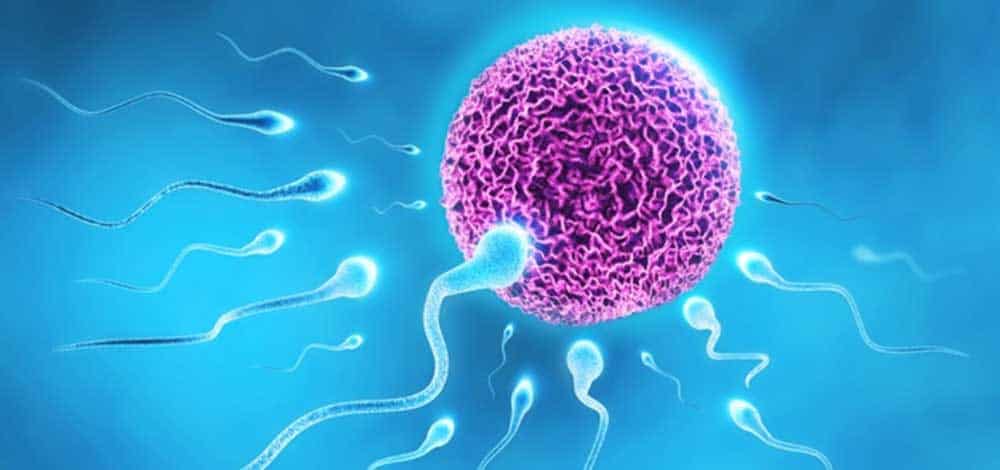HEALTH & FERTILITY
Approximately 12% of women of childbearing age, or 7.3 million women in the U.S. have impaired the ability to become pregnant, and 10-17% of couples experience infertility or subfertility at some time.
Fortunately, some diet and lifestyle behaviors can positively affect fertility in women:

Avoid refined carbohydrates
Women whose diets were high in glycemic load, indicative of more refined carbohydrate – white flour, sugar, white pasta, etc. – were almost twice as likely to experience ovulatory infertility. Similarly, consumption of soft drinks is associated with compromised fertility. This is likely because insulin serves many functions in the ovary, including the production of hormones and hormone receptors – hyperinsulinemia, caused by excessive refined carbohydrate intake, can interfere with normal ovulation.
Consume plant sources of protein and iron
Protein intake is thought to affect hormone levels, and these hormonal effects are likely to influence fertility. Researchers have found that women with high animal protein intakes were 39% more likely to experience infertility than women with lower animal protein intake. In contrast, women with high plant protein intake were 22% less likely to experience infertility than women with lower plant protein intake. Similarly, consumption of nonheme iron (the type of iron found in plant foods and supplements) is associated with a reduced risk of infertility, whereas heme iron (found in animal foods) intake showed no association.
Get adequate micronutrients
Micronutrient adequacy is crucial for optimal fertility and during pregnancy for overall maternal, fetal, and child health. B vitamins are essential for the development of sperm and egg cells. Folate, a B vitamin, is crucial for preventing neural tube defects, and may also help to maintain regular ovulation. Comprehensive micronutrient adequacy promotes fertility, and this is most effectively achieved by eating a variety of colorful natural plant foods. Combining a micronutrient-rich eating style with a high-quality supplement to assure adequate, Vitamin D, iodine, zinc, and B12 also helps to protect against deficiencies. Multivitamins should be chosen carefully since most contain potentially harmful ingredients. We can test for you the most essential vitamins, minerals, metabolites, essential fatty acids, and antioxidants to ensure you are getting the proper amount of each of these micronutrients.
Avoid dairy products
Two or more servings per day (compared to 1 or less per week) of low-fat dairy foods was associated with an 85% increased risk of infertility. Apparently, it was the dairy protein that had the most detrimental effects because the decreased fertility was seen only for low-fat dairy. Galactose, a component of lactose, is known to interfere with ovulation, and dairy foods are also thought to contribute to polycystic ovary syndrome (PCOS), a common cause of infertility.
Exercise
This is common sense. A sedentary lifestyle is likely a risk factor for infertility. Each hour per week of vigorous activity is associated with a 5% decrease in risk of ovulatory infertility. Although moderate intensity exercise is not associated with fertility, of course, it is still beneficial for overall health and weight maintenance.
Maintain a healthy weight
Weight loss in overweight and obese women can improve reproductive function. More importantly, maternal obesity is associated with increased risk of complications and birth defects.
For Men
Here are ten science-backed ways to boost sperm count and increase fertility
Take D-Aspartic Acid Supplements…
Exercise Regularly… Get Enough Vitamin C…
Relax and Minimize Stress. …
Get Enough Vitamin D…
Take Tribulus Terrestris…
Take Fenugreek Supplements…
Get Enough Zinc…
Take Ashwagandha….
Eat Maca Root…
And DEFINITELY take Proxeedplus fertility supplement
To learn more about Proxeed fertility supplement, please click on the link below
Before And After Results From Testosterone Therapy
We strongly recommend that before beginning any traditional or allopathic approach treatments for any health conditions or concerns, that you look into getting all of your hormones checked and see if hormone optimization therapy could be the right option for you.
Now, if you got our micronutrient blood test done along with your hormone blood test, imagine the effects this could have on your vitality and how much more you could achieve if you were to optimize your hormonal and micronutrient necessities.
For more information on our micronutrient blood test and how we could help you improve your current treatment, please click on the link below.
https://www.medicalhealthinstitute.com/micronutrient-deficiency-test



